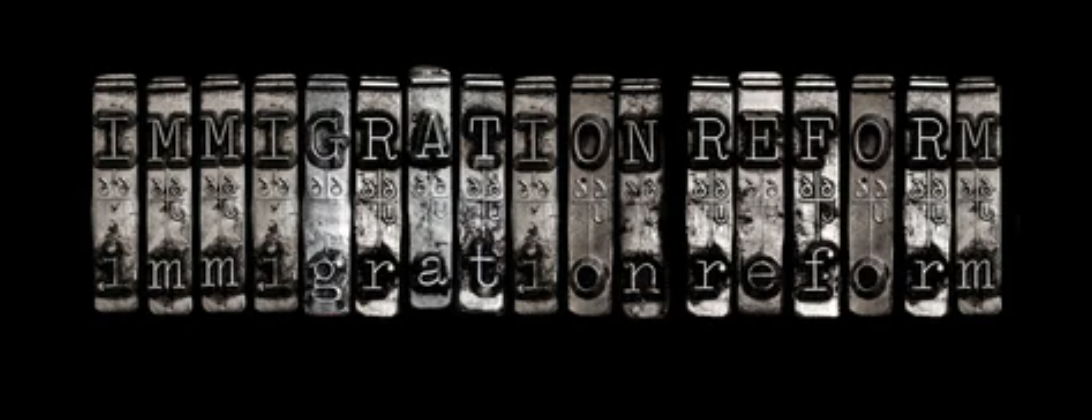
U.S. Citizenship Act of 2021
On February 18, 2021, the Biden administration formally introduced the highly anticipated new immigration bill in Congress—the U.S. Citizenship Act of 2021. Below are key takeaways of what the bill is setting out to do in efforts to reform the immigration laws and process.
PROVIDE PATHWAYS TO CITIZENSHIP & STRENGTHEN LABOR PROTECTIONS
- Create an earned roadmap to citizenship for undocumented individuals. The bill allows undocumented individuals to apply for temporary legal status, with the ability to apply for green cards after five years if they pass criminal and national security background checks and pay their taxes. Dreamers, TPS holders, and immigrant farmworkers who meet specific requirements are eligible for green cards immediately under the legislation. After three years, all green card holders who pass additional background checks and demonstrate knowledge of English and U.S. civics can apply to become citizens. Applicants must be physically present in the United States on or before January 1, 2021. (*waiver maybe available for those deported on or after January 20, 2017 who were physically present for at least three years prior to removal).
- Changes the word “alien” to “noncitizen” in our immigration laws.
- Keep families together. The bill reforms the family-based immigration system by clearing backlogs, recapturing unused visas, eliminating lengthy wait times, and increasing per-country visa caps. It also eliminates the so-called “3 and 10-year bars.” Will include permanent partnerships and eliminating discrimination facing LGBTQ+ families. Provides protections for orphans, widows, children, and Filipino veterans who fought alongside the United States in World War II. Lastly, the bill allows immigrants with approved family-sponsorship petitions to join family in the United States on a temporary basis while they wait for green cards to become available.
- The bill includes the NO BAN Act that prohibits discrimination based on religion and limits presidential authority to issue future bans.
- Promote immigrant and refugee integration and citizenship.
- The bill clears employment-based visa backlogs, recaptures unused visas, reduces lengthy wait times, and eliminates per-country visa caps. The bill makes it easier for graduates of U.S. universities with advanced STEM degrees to stay in the United States; improves access to green cards for workers in lower-wage sectors; and eliminates other unnecessary hurdles for employment-based green cards. The bill provides dependents of H-1B visa holders work authorization, and children are prevented from “aging out” of the system. The bill also creates a pilot program to stimulate regional economic development, gives DHS the authority to adjust green cards based on macroeconomic conditions, and incentivizes higher wages for non-immigrant, high-skilled visas to prevent unfair competition with American workers.
- Protect workers from exploitation and improve the employment verification process.
PRIORITIZE SMART BORDER CONTROLS
- Supplement existing border resources with technology and infrastructure.
- Manage the border and protect border communities.
- Crack down on criminal organizations.
ADDRESS ROOT CAUSES OF MIGRATION
- The bill codifies and funds the President’s $4 billion four-year inter-agency plan to address the underlying causes of migration in the region, including by increasing assistance to El Salvador, Guatemala, and Honduras, conditioned on their ability to reduce the endemic corruption, violence, and poverty that causes people to flee their home countries.
- Establishes Designated Processing Centers throughout Central America to register and process displaced persons for refugee resettlement and other lawful migration avenues—either to the United States or other partner countries.
- Re-institutes the Central American Minors program to reunite children with U.S. relatives and creates a Central American Family Reunification Parole Program to more quickly unite families with approved family sponsorship petitions.
- Improve the immigration courts and protect vulnerable individuals. The bill expands family case management programs, reduces immigration court backlogs, expands training for immigration judges, and improves technology for immigration courts. The bill also restores fairness and balance to our immigration system by providing judges and adjudicators with discretion to review cases and grant relief to deserving individuals.
- Support asylum seekers and other vulnerable populations. The bill eliminates the one-year deadline for filing asylum claims and provides funding to reduce asylum application backlogs. It also increases protections for U visa, T visa, and VAWA applicants, including by raising the cap on U visas from 10,000 to 30,000.
Interested in how the U.S. Citizenship Act of 2021 will affect you or your family? Contact Mokolo Law Firm at 713-784-2906 for your consultation!
Latest Posts
What To Do If The Police Ask About Your Immigration Status in Houston, Texas
Having an encounter with the police can be a nerve-wracking experience for both immigrants and non-immigrants. If you’re an immigrant or have unresolved...
How To Apply For USA Citizenship in Houston Texas
So many legal and permanent immigrants residing in the U.S.A. have a desire to fulfil "The American Dream". Such a dream can never be fulfilled without...

